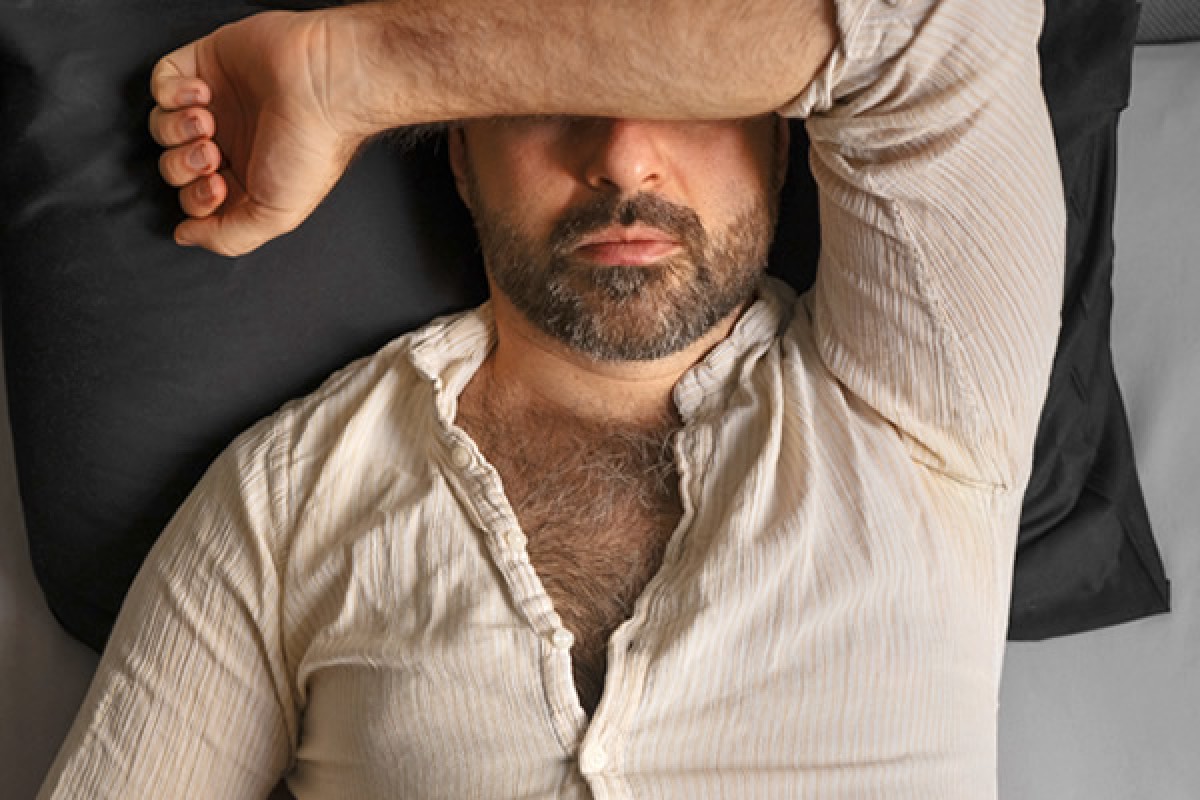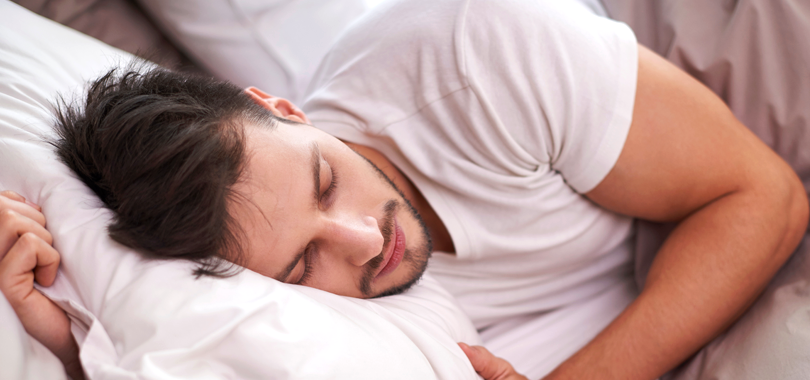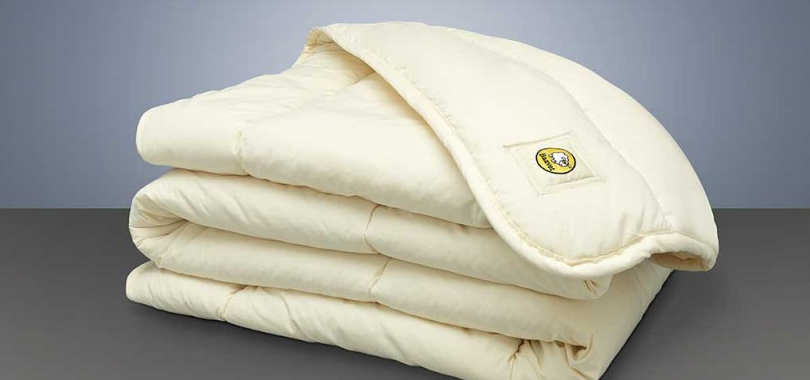

What are the Main Causes of Night Sweats in Men?
Night sweats can be uncomfortable, disruptive, and in some cases, a sign of something more. While understanding the cause is key, creating a more breathable, comfortable sleep environment through thoughtful bedding choices can also make a noticeable difference. In this guide, we explore the most common causes of night sweats in men, what they might mean, and how to manage them for better, more restful sleep.
What Are Night Sweats?
Night sweats refer to episodes of excessive sweating during sleep that occur even when your sleeping environment is cool and comfortable. According to the NHS, they are defined as sweating that soaks your nightclothes or bedding, without any obvious cause such as a warm room or heavy covers.
To be classified as true night sweats, the episodes typically:
-
Occur during sleep
-
Are severe enough to drench clothing or sheets
-
Happen without external heat or bedding-related triggers
While occasional sweating at night is common, frequent or disruptive night sweats may be a sign of an underlying health condition, and it's worth paying attention to any related symptoms.

Main Causes of Night Sweats in Men
Night sweats are not a condition themselves, but rather a symptom of something else, whether it’s a temporary lifestyle factor or a more persistent health issue. For men, the causes of night sweats typically fall into four main categories:
-
Hormonal imbalances
-
Lifestyle and behavioural factors
-
Side effects from medications
-
Underlying medical conditions
Let’s explore each in detail.
Hormonal Imbalances
Hormones play a vital role in body temperature regulation. When levels become imbalanced, particularly testosterone or thyroid hormones, the body’s internal thermostat may become erratic, leading to night sweats.
a) Low Testosterone (Hypogonadism)
Testosterone plays a key role in regulating body temperature and sleep quality in men. When levels are low, symptoms may include:
-
Night sweats
-
Fatigue
-
Reduced libido
-
Difficulty sleeping
-
Mood changes
Low testosterone becomes more common with age. One study published in the New England Journal of Medicine found that approximately 38.7% of men aged 45 years and older had levels considered clinically low.
Because testosterone influences the hypothalamus, the part of the brain that regulates temperature, deficiencies can disrupt the body’s ability to manage heat during sleep.
b) Hyperthyroidism
An overactive thyroid boosts metabolic activity, often causing symptoms such as:
-
Increased body temperature
-
Excessive sweating (day and night)
-
Restlessness and sleep difficulties
-
Weight loss
A simple blood test can detect thyroid dysfunction.
Lifestyle and Behavioural Triggers
In many cases, night sweats are triggered by everyday habits that impact thermoregulation.
a) Alcohol
Alcohol expands blood vessels (vasodilation), which can lead to temperature spikes and sweating. It also disrupts sleep stages, especially REM, increasing the likelihood of night sweats.
b) Spicy Foods or Heavy Evening Meals
Late-night meals high in spices or fat can elevate core body temperature during digestion, potentially leading to sweating episodes, especially when eaten within two hours of bedtime.
c) Caffeine and Nicotine
Both substances are stimulants. When consumed in the evening, they may:
-
Increase metabolism and heart rate
-
Disrupt thermoregulation
-
Contribute to night-time awakenings and sweating
d) Chronic Stress and Anxiety
Anxiety may be a contributing factor to night sweats, but the exact relationship remains unclear. While anxiety is a well-known cause of daytime sweating, the connection between anxiety and night sweats specifically is less well established.
A review in the National Library of Medicine notes a relationship between anxiety and disrupted sleep patterns, suggesting anxiety could indirectly contribute to night sweats by disrupting sleep cycles or amplifying the body’s stress response during sleep.
Medication Side Effects
Night sweats are a common side effect of certain prescription and over-the-counter drugs. Common culprits include:
-
Antidepressants
-
Steroids (e.g. prednisone)
-
Antipyretics
-
Diabetes medications, such as insulin
These medications may influence neurotransmitters or blood sugar levels, which in turn affect the body’s heat regulation.
Underlying Medical Conditions
When night sweats are persistent or severe, they may indicate a more serious health issue. Some of the most important to consider include:
a) Infections
Chronic infections can cause fever-related night sweats. These are typically accompanied by chills, fever, or weight loss.
b) Obstructive Sleep Apnoea (OSA)
Men with OSA often experience frequent arousals and oxygen drops during sleep, triggering sweating, daytime fatigue, and snoring. Research has found that up to one-third of men with untreated OSA report frequent night sweats.
c) Cancer
Cancers can cause night sweats, often with fever and unexplained weight loss. These symptoms are part of a group known as “B symptoms.”
d) Hypoglycaemia
Men with diabetes may experience low blood sugar at night, especially if using insulin. This can cause sweating, trembling, and morning confusion.

How to Treat and Prevent Night Sweats
Treating night sweats effectively starts with understanding what’s behind them.
When to Talk to Your Doctor
Night sweats are common and often harmless, but they can sometimes be a sign that something more is going on. If you’re experiencing frequent or disruptive night sweats, it’s a good idea to check in with your GP.
According to the NHS, you should consider speaking with a doctor if:
-
you have night sweats regularly that wake you up or worry you
-
you also have a very high temperature (or feel hot and shivery), a cough or diarrhoea
-
you have night sweats and you're losing weight for no reason
Even if no underlying condition is identified, your doctor can help you explore treatment options.
Ease Stress Before Bed
Emotional tension can heighten your body’s stress response during sleep. Try relaxation practices like deep breathing, gentle stretching, or guided meditation before bed.
Watch What You Eat and Drink
Certain foods and drinks, especially in the evening, can trigger or worsen night sweats.Limit your intake of alcohol, caffeine, and spicy meals in the hours leading up to bedtime.
Support a Healthy Weight
Excess weight can raise your core temperature and increase your risk of sleep apnoea, both of which may contribute to night sweats.
Address Underlying Causes with Medical Support
If your night sweats are related to a hormonal imbalance, such as low testosterone or an overactive thyroid, treatment may involve hormone replacement therapy or medication to restore balance. Your doctor may also adjust or switch medications if your night sweats are a side effect of those.
Cool the Sleep Environment
Creating the right sleep environment can make a major difference in managing night sweats, especially while addressing the underlying cause. One of the most effective ways to stay comfortable is to regulate external temperature and moisture with the right bedding choices.
Key Cooling Strategies:
-
Sleep in lightweight, breathable sleepwear made from natural fibres.
-
Keep the bedroom temperature perfect for sleep, ideally between 16–19°C (60–67°F).
-
Use a fan, air conditioner, or open windows for ventilation.
-
Avoid heavy duvets or synthetic bedding that traps heat and moisture.
Why Wool Bedding Helps with Night Sweats
Struggling with night sweats? Wool bedding offers a simple, natural solution.
Here’s why it works:

Regulates temperature – Keeps you cool when it’s hot, and warm when it’s cool

Absorbs moisture – Holds up to 30% of its weight without feeling damp

Releases humidity – Gradually expels moisture into the air to keep your bed dry

Naturally breathable – Promotes airflow and prevents overheating

Better sleep comfort – Reduces sweaty wake-ups and keeps skin feeling fresh

Support Better Sleep, Naturally
Night sweats can have a range of causes. If they’re frequent or affecting your wellbeing, speaking with your doctor is always the best first step.In the meantime, simple changes to your sleep environment can help you feel more comfortable while you manage the underlying cause.
Here at Baavet, we specialise in natural wool bedding that’s designed to support more restful sleep:
-
Breathable and moisture-wicking, to help you stay dry through the night
-
Temperature-regulating, to keep you comfortable without overheating
-
Naturally hypoallergenic and gentle on skin
Wool bedding may not completely solve your night sweats, but it can make your nights feel less disrupted, more comfortable, and a bit more manageable.
Discover our wool bedding collection and sleep better, naturally.

